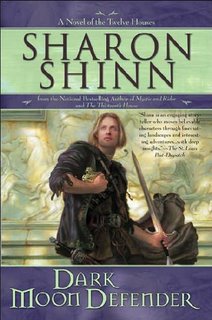A History of Pi, by Petr Beckmann
Despite its title, A History of Pi recounts more than the evolution of a geometric constant. In this case, moving beyond the core topic of the book turns out to be a bad thing. Yes, there is quite a bit of mathematical history, but the author simply uses that history as a platform to share his extremely biased view of government, religion, and society. At first it is distracting, then quickly becomes irritating. If you can make it past the first few chapters, you start to laugh at the off-topic rants. Once you reach that point, you can brush off the irrelevant bull and pay attention to the math history that motivated you to pick up the book in the first place.
For example, a chapter on Archimedes includes a figure with the following caption:
"Archimedes screw or helical pump. It is still used 23 centuries later by the Egyptian felahim, whose rulers think it more important to destroy Israel than to provide their people with modern irrigation."
Never mind that the chapter never once mentions the helical pump. Never mind that Egypt's position toward Israel has nothing to do with the history of pi. The author takes advantage of the most tenuous of links, leveraging a supposed compliment of the longevity of the ancient engineer's inventions and twisting it into a political statement, one which undermines the so-called compliment.
If I wanted a book on politics, I'd pick up a book on politics.
But the book isn't all bad. It does present the history of pi in the context of the societies which influenced its evolution. There are some mathematical insights I particularly appreciated. His explanation of the importance of proofs clicked for me, and his arguments were strengthened by a later discussion of the value of not-yet-proven theorems. The implications of the five Euclidian axioms was another highlight. Someone with more formal mathematical training than I have might find the mathematical treatise too light, but I thought it was just about the right length and the right level of detail. It isn't meant to be a scholarly work, so don't expect one.
But unfortunately the math is overshadowed by the hogwash. For a man that places so much importance on logic and proof in mathematics, it surprises me that he does not apply the same rigor to the political biases he espouses with such fervor. The poppycock can be partially excused once you realize the author lived in Czechoslovakia until he fled to the United States in the sixties; his life was shaken by Nazis and communists. His portrayal of WWII-era Germany shows how skewed the author's bias really is. While I do not support Nazi Germany in any way, his portrayal of the Germans as technologically inept, unable to come up with anything better than giant bells which use sound to kill, is unquestionably false. He condemns war, then arbitrarily selects acts of war and aggression and glorifies them. His absolute confidence in his positions makes no sense to me. Perhaps the inability to boil down history to a set of provable theorems has left the author with nothing to fall back on other than unjustified certainty in a misguided interpretation of history.
Most of the author's assertions make you roll your eyes, but there was one that I found particularly offensive. To demonstrate that a computer doesn't possess true intelligence, he compares the computer to an idiot savant. He says that both are "moron[s] whose total imbecility can often be quite exasperating." This is an ugly, insolent statement. It is clear that he believes the contemporary definition of idiot completely applies to an idiot savant. The author is the idiot here, placing absolute confidence in an opinion based on pure ignorance, just like many other of the author's assertions. I have had the honor of becoming acquainted with a so-called idiot savant, a man I am proud to call my friend. My friend clearly has some serious cognitive defects, and it is true that he doesn't understand how he comes up with answers to certain types of questions, but he is NOT an empty shell with no intelligence whatsoever. To focus solely on the unusual pieces of an idiot savant, both positive and negative, is to ignore the majority of who he is. The absence of certain skills lets the intelligence he does possess shine through, and helps you appreciate just how amazing human intelligence really is.
This book gets 4 stars for the parts that deal with the evolution of pi, but only 2 stars for making you wade through so much manure. Overall I give it three stars. Now I just need to decide whether to place this review in the fiction or non-fiction category.
3 Stars 








